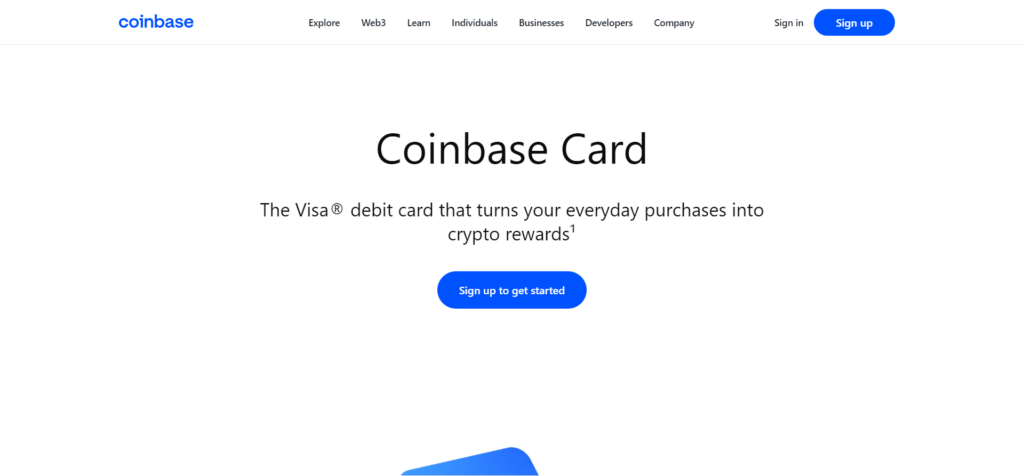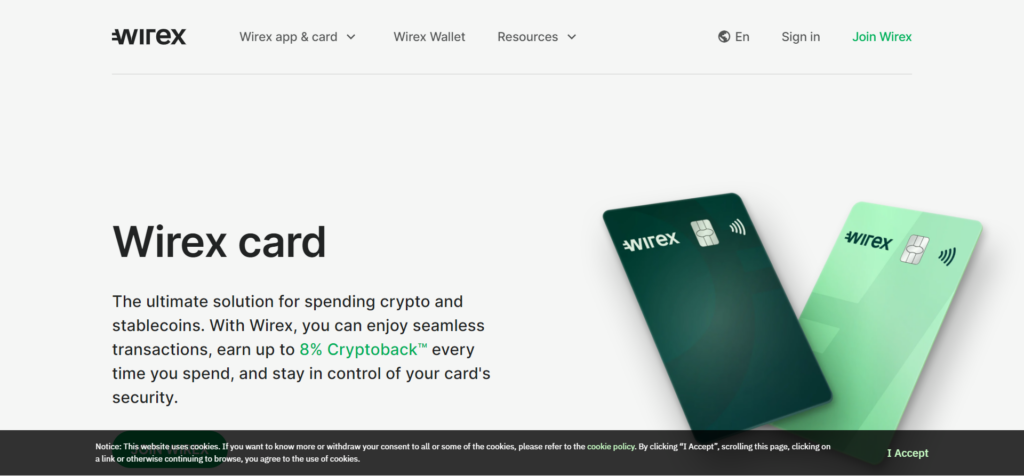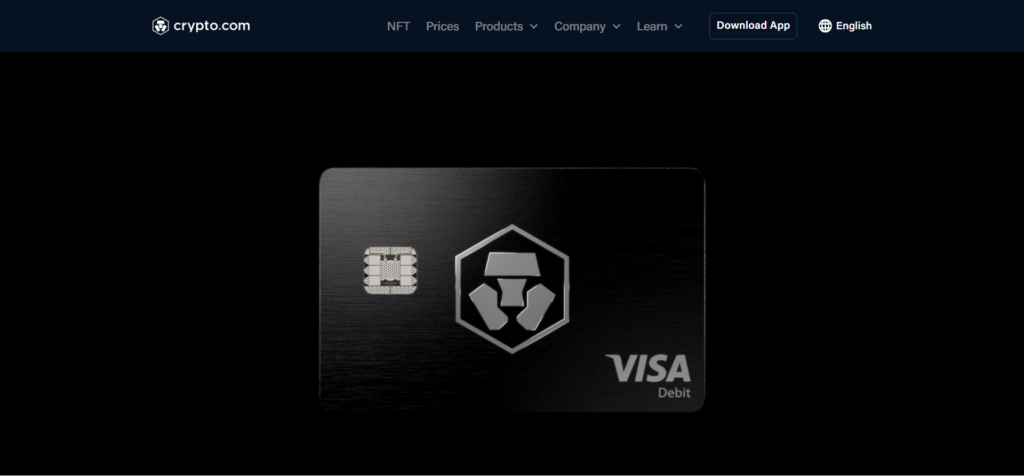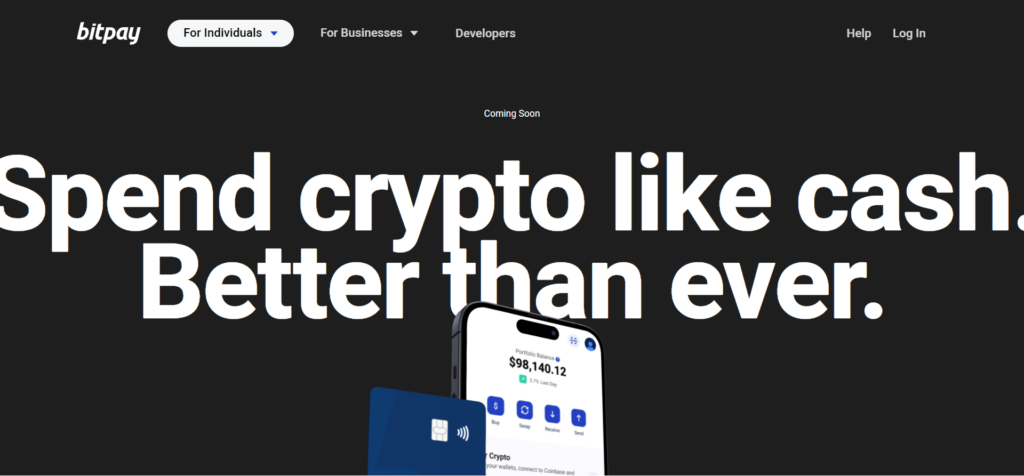8 Best Crypto Debit Cards in 2023: Spend your Crypto
The earnings statement of VISA released last year revealed that $2.5 billion in payments were made using crypto debit cards. With increasing demand, more and more companies are coming out with their own cards and features. However, despite so many options, only a few made it to our list of best crypto debit cards based on several foundational factors we’ll discuss today.
But first, let’s quickly go over what crypto debit cards are.
What are Crypto Debit Cards?
The idea of using your digital coins to make your everyday purchases is not new. But transactions are a two-way street. You, the buyer, might want to use your crypto to buy something, but the seller might not accept it.
Enter crypto debit cards.
These cards allow you to use your crypto to make purchases while the vendor receives fiat currency in return. Most of these crypto debit card providers, like Coinbase or BitPay, partner with Visa and Mastercard, and as we know, most online and offline stores today accept Visa and Mastercard.
To apply for one, first, create an account with the company or exchange providing the card, and complete KYC. After receiving the card (virtual or plastic card, depending on the provider), you can then add funds to your card, in most cases, directly from your crypto wallet.
Since your crypto is getting converted to fiat currency in real-time, you’ll trigger a tax event every time you purchase something.
We’ve explained the tax consequences of crypto debit cards in-depth here. However, if you’re unaware of the tax implications of crypto transactions in general, you can always check out our guide on crypto taxes in different countries.
How to Choose the Best Crypto Debit Cards?
Best is, of course, subjective. What’s best for you will ultimately come down to your needs and situational demands. That said, there will still always be a few fundamental yet crucial factors that determine a product’s general value.
In the context of crypto debit cards, we’ve identified five universal factors you must know and consider when choosing one for yourself, starting with…
Fees and pricing:
Fees and pricing are some of the most critical factors in choosing the best crypto debit card. This may include transaction fees, ATM withdrawals and monthly or annual maintenance charges and sometimes, foreign exchange fees too. So, pick the most cost-effective option based on how you use it.
Supported cryptocurrencies:
Most cards only support a handful of popular cryptocurrencies, like Bitcoin, Ethereum, Binance Coin, Litecoin, and a few others, while some only support Bitcoin. You need to pick a card that allows you to use the coins you already own, plan to own or are most comfortable with.
Availability:
Where you live can significantly increase or decrease your pool of options, as not all crypto debit card providers offer their services in every country. For instance, the Binance debit card is only available in the EEA (European Economic Area), which means US residents can’t apply for this card.
So, make sure to look out for the availability and regulations around these cards in your country.
Rewards and perks:
Most, if not all, crypto debit cards offer rewards and perks for using their card, like cashbacks, discounts, special EMIs offers, etc. These can save or make you a lot of extra money. So, don’t overlook this part.
Security:
Security is a major concern, as crypto hacks and scams are particularly prevalent in the crypto world. Thus, choosing a secure crypto debit card with multiple-factor authentication, EMV chip technology and fraud protection measures in place is crucial.
1. Coinbase

Coinbase first launched its VISA debit card in the UK in April 2019, allowing users to spend their crypto for daily transactions and purchases.
Not long after, Coinbase Card quickly expanded its operating region to the EU and US. While EU and UK residents must pay a £4.95/€4.95 issuance fee, the card is free to apply for US residents. Besides that, the card only charges a 2.49% fee on liquidation when you convert crypto to fiat.
The Coinbase card supports 8 cryptocurrencies, including Bitcoin, Ethereum and Litecoin, and offers robust security features like instant card freeze, pin protection and contactless withdrawals.
While Coinbase is one of the best crypto debit cards out there, it’s not one without limitations, which is you must have a Coinbase account to use and apply for the card. But other than that, it’s our overall best pick.
2. Binance

In 2020, in a partnership with Swipe, Binance launched its first VISA debit card with an impressive cashback offer of up to 8%. Unfortunately, as mentioned before, the card is only available in EEA, meaning US and UK residents can’t apply for this card.
Binance card supports 15 cryptocurrencies, including Bitcoin, Ethereum and Binance Coin. The card charges no issuance or maintenance fees. It only charges a fee of 0.9% on transactions and ATM withdrawals, though ATM operators may impose additional fees.
The only two limitations of the Binance Card are one, it’s only available in Europe, and two, you must have a balance of 600 Binance Coins (BNB) in your wallet to receive cashback, which also comes in BNB.
3. Wirex

Wirex, a digital payment platform, launched its VISA crypto debit card in 2015. With unique no fees, over 150 cryptocurrencies and worldwide availability, it’s one of the best crypto debit cards in the market.
Firstly, the card offers no issuance or monthly/yearly maintenance fees. It also doesn’t charge additional fees on ATM withdrawals until $400 per month.
The card is available in the US, UK, Europe and several Asian and Pacific countries, making it accessible to users worldwide. Speaking of accessibility, the Wirex Card supports 150+ cryptocurrencies and various fiat currencies too.
The card provides up to 8% cashback, but only in their native cryptocurrency, WXT. Wirex recently introduced a new feature called X-Account, which offers up to 10% interest on Bitcoin and Ethereum.
Overall, the Wirex card is an excellent option if you’re looking for a reliable, secure, and cost-effective way to spend your cryptocurrencies.
4. Monolith

The Monolith VISA card is a unique entry in our list of best crypto debit cards, as it only supports Ethereum and ERC-20 tokens, which may instantly push away some individuals who prefer Bitcoin and other non-ERC-20 tokens.
Nonetheless, the Monolith card has its strengths and weaknesses.
For starters, the card charges no issuance or maintenance fee. It only charges a transaction fee of 1.75% and a top-up fee of 1%, although you can avoid it by topping up your card with DAI or TKN tokens.
ATM withdrawals are free up to twice a month, after which you’re charged £0.75/€0.85 on every withdrawal. Note that you can’t spend more than the daily €8000 limit and €450 withdrawal limit.
Monolith is available in 31 countries, but unfortunately, the US is not one of them. The biggest drawback of Monolith, however, is that it doesn’t offer any rewards or perks.
5. Crypto.com

Unlike other cards, Crypto.com’s debit card doesn’t charge any issuance or maintenance fee. Instead, it requires you to stake CRO, Crypto.com’s native token, in order to buy one of their five debit cards, all of which come with their own perks, benefits and limitations.
Based on the card you pick, prices may vary from $0 to $400,000. Each card has its own ATM withdrawal limits of up to $1000 every month. For instance, the Ruby Steel card crypto.com offers allows you to withdraw up to $400 from ATMs, while the Midnight Blue card only allows for $200 per month.
Furthermore, all of crypto.com’s crypto debit cards support 100+ cryptocurrencies and 20+ fiat currencies. Cashbacks range from 1% to 8%, depending on the card. The cards are available in the US, Canada, Europe and Asia Pacific countries.
6. BlockCard

BlockCard is the US-based crypto debit card offered by Unbanked. Unfortunately, it’s only available for US residents currently, but regardless, what sets BlockCard apart from other crypto debit cards is its incredibly low fees.
BlockCard doesn’t charge any transaction or deposit fee. It only charges a $10 activation fee and a $5 monthly account management fee, which, too, is dropped if you spend more than $750 per month, excluding cash transactions. Besides, it also charges a $3 fee on domestic ATM withdrawals and $3.5 internationally.
The card supports 14 cryptocurrencies, including Bitcoin, Ethereum and its native Ternio Tokens (TERN). Speaking of which, similar to Crypto.com, you must purchase or stake its native token TERN to buy their card. The more you stake, the more cashback you’ll get. For instance, staking 145,000 TERN (around $500) could get you up to 6% cashback on transactions.
Overall, BlockCard has some of the lowest fee structures in the market and is an excellent option for US residents.
Update: BlockCard will be winding down soon. However, as of now, it’s still operating.
7. BitPay

BitPay, available only to US residents, is a Mastercard-based crypto debit card with the highest transaction and balance limit among all the others in this list. It allows you to spend up to $10,000 and withdraw $2000 from ATMs every day. Plus, it has a maximum balance limit of $2500.
The card only supports 7 cryptocurrencies, including Bitcoin and Ethereum, of course, and 6 fiat currencies. It also charges a 3% transaction fee on overseas purchases and a 2.5% fee on ATM withdrawals.
Now, the downsides.
Firstly, the BitPay card doesn’t offer any cashback or reward.
Secondly, in compliance with US laws, you must provide your driver’s license and social security number to apply for this card, which is not the case with the other crypto debit cards on this list.
Lastly, based on the reviews online on various platforms, the user experience of BitPay customers is very poor. A red flag? You decide.
8. Crypteriam Visa

Crypterium’s VISA debit card is probably the only card in this list available in 178 countries, including all European countries, the UK, Germany and even China, according to them.
Crypterium has a complicated fee structure, which you can check out here. But overall, it has a $3.56 monthly maintenance fee, which is waived off if you top-up your card with more than $356 every month (the monthly top-up limit is €5000). Ordering the plastic card will also cost you money – €14.99.
Crypterium doesn’t clarify exactly how many cryptocurrencies are supported on their debit card, but it does support the most common ones, like Bitcoin, Ethereum, Litecoin, Binance Coin, etc.
Unfortunately, currently, Crypterium has no reward plans, which could be a deal breaker for many. However, its biggest strength is its availability and growing reach worldwide.
Final Thoughts
With the increasing popularity and a growing number of options, picking the best crypto debit card is more challenging than ever. But we hope this list helps you narrow your search, eliminating the ones that provide poor services, charge unreasonably high fees or are simply discontinued.
The fundamental factors we discussed may help too, but ultimately, you need to pick based on what suits your needs and situation. Good luck.
FAQ
Are there any restrictions on where I can use my crypto debit card?
Yes, it depends on the specific card provider and the countries they operate in. Besides that, some cards may impose restrictions on certain regions due to local regulations or restrictions by the card network itself (such as Visa or Mastercard).
Can I use a crypto debit card for online shopping?
Yes, as most crypto debit cards are partnered with Visa or Mastercard, you can shop on any online store that accepts them.
How do I apply for a crypto debit card?
The exact steps may differ based on the particular card provider. But roughly speaking, you need to register an account, complete the application form, and pass the required verification checks to apply for a card.
Do I need to undergo KYC (Know Your Customer) verification to use a crypto debit card?
Yes, most card providers require users to undergo KYC verification before they can use their crypto debit cards. This is to comply with anti-money laundering (AML) and counter-terrorism financing (CTF) regulations.
How long does it take to receive a crypto debit card after applying?
It depends on the card provider and the delivery method you choose. Some providers offer instant card issuance, while others may take a few days or even weeks to deliver the card. Virtual cards, on the other hand, are delivered online instantly.
How do I load funds onto my crypto debit card?
While the exact steps may differ, you can load funds directly from your crypto wallet or deposit fiat currency by simply using bank transfer and credit/debit cards.
Can I use a crypto debit card to withdraw cash from an ATM?
Yes, most crypto debit cards allow withdrawing cash from ATMs. However, there may be fees and limits on ATM withdrawals, which may vary depending on the card provider.
How do I track my spending and transactions with a crypto debit card?
Most card providers offer mobile apps or online account portals where users can track their spending and transactions in real-time.
Is it safe to use a crypto debit card?
Yes, as long as you choose a reputable and reliable card provider (like the ones on this list) and follow proper security measures, such as keeping your card details and PIN secure, using a crypto debit card is generally safe.
What happens if I lose my crypto debit card?
If you lose your crypto debit card, you should contact your card provider immediately to report the loss and have the card blocked. Some providers allow you to do this from their mobile app too. A replacement card may come for a fee, depending on the provider.
What are the benefits of using a crypto debit card?
Using a crypto debit card allows you to spend your digital coins in the real world, just like traditional fiat currency, providing greater flexibility and convenience for buyers and sellers alike.
Additionally, most card providers offer rewards or cashback programs for using their cards, allowing users to earn on their purchases.